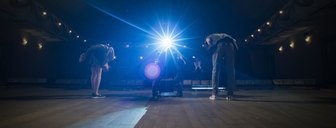Recent polling by YouGov explores a phenomenon known as the Mandela Effect, in which a large number of people share a particular false memory of a historical or cultural event. The effect's name is derived from people reporting vivid memories of hearing about South African anti-Apartheid leader Nelson Mandela dying in prison in the 1980s (in reality, he died in 2013).
More recently, online communities have speculated about various other instances in which this effect might occur. Our poll asked Americans to recall their memories of nine examples of the Mandela effect frequently cited in such communities, providing them with one option that is purportedly a common false memory and one option that is accurate.
Americans are more likely to hold false rather than accurate memories on seven of the nine topics polled about. (The questions didn't directly ask about memories, but presumably many people based their choice on their memory of the events.)
The cultural reference that people are most likely to misremember is the famous exchange between Darth Vader and Luke Skywalker in the Star Wars film "The Empire Strikes Back." Three in five people (62%) remember Darth Vader saying "Luke, I am your father," while only 17% remember the actual line, "No, I am your father." Another often-cited example of the Mandela Effect involves the spelling of the long-running children's book series "The Berenstain Bears": Most people (61%) remember the series being titled "The Berenstein Bears." A third instance involves the Monopoly Man, who 58% of people inaccurately remember as wearing a monocle.
Among the nine topics polled, the Mandela Effect is weakest around its namesake, Nelson Mandela. Only 13% of people mistakenly remember Mandela dying in prison in the 1980s, while 57% accurately say he died in 2013 after serving as president of South Africa.
Are Americans familiar with the Mandela Effect? Roughly half (53%) say they've heard about the effect, though only 18% say they've heard "a lot" about it. Younger Americans are far more likely to be familiar with it than older Americans are. Nearly half of people (47%) say they believe it's possible for many people to actually share the same false memory, and 40% say they've shared a memory with others that many people remember differently or say is false. Far fewer – 28% – believe in one far-fetched explanation for the Mandela Effect: parallel realities.
— Linley Sanders, Oana Dumitru, and Carl Bialik contributed to this article
Related: From millionaires to Muslims, small subgroups of the population seem much larger to many Americans
This poll was conducted on August 23 - 26, 2022 among 1,000 U.S. adult citizens. Explore more on the methodology and data for this poll.
Image: Getty (Bulat Silvia)












